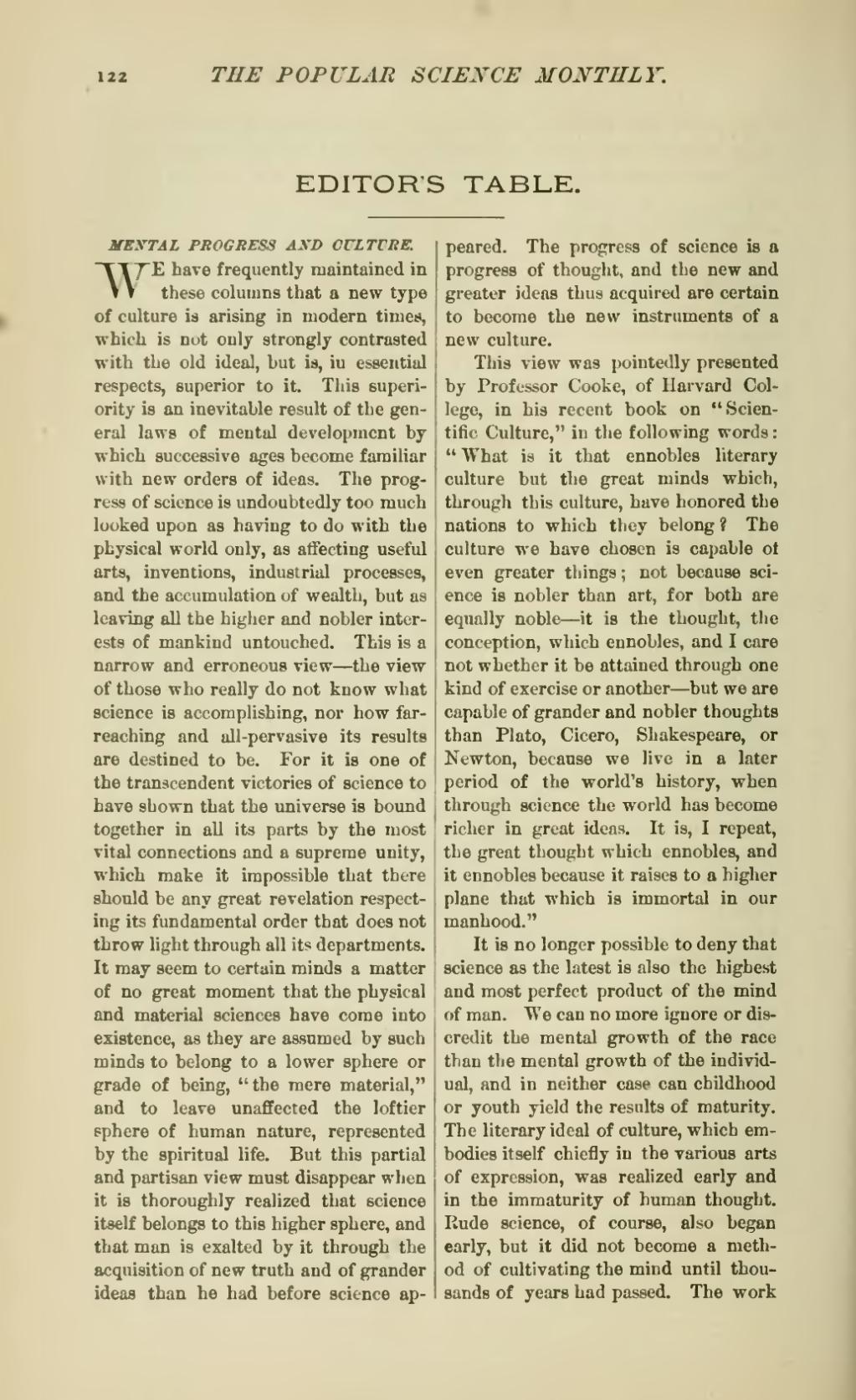MENTAL PROGRESS AND CULTURE.
WE have frequently maintained in these columns that a new type of culture is arising in modern times, which is not only strongly contrasted with the old ideal, but is, iu essential respects, superior to it. This superiority is an inevitable result of the general laws of mental development by which successive ages become familiar with new orders of ideas. The progress of science is undoubtedly too much looked upon as having to do with the physical world only, as affecting useful arts, inventions, industrial processes, and the accumulation of wealth, but as leaving all the higher and nobler interests of mankind untouched. This is a narrow and erroneous view—the view of those who really do not know what science is accomplishing, nor how far-reaching and all-pervasive its results are destined to be. For it is one of the transcendent victories of science to have shown that the universe is bound together in all its parts by the most vital connections and a supreme unity, which make it impossible that there should be any great revelation respecting its fundamental order that does not throw light through all its departments. It may seem to certain minds a matter of no great moment that the physical and material sciences have come into existence, as they are assumed by such minds to belong to a lower sphere or grade of being, "the mere material," and to leave unaffected the loftier sphere of human nature, represented by the spiritual life. But this partial and partisan view must disappear when it is thoroughly realized that science itself belongs to this higher sphere, and that man is exalted by it through the acquisition of new truth and of grander ideas than he had before science appeared. The progress of science is a progress of thought, and the new and greater ideas thus acquired are certain to become the new instruments of a new culture.
This view was pointedly presented by Professor Cooke, of Harvard College, in his recent book on "Scientific Culture," in the following words: "What is it that ennobles literary culture but the great minds which, through this culture, have honored the nations to which they belong? The culture we have chosen is capable of even greater things; not because science is nobler than art, for both are equally noble—it is the thought, the conception, which ennobles, and I care not whether it be attained through one kind of exercise or another—but we are capable of grander and nobler thoughts than Plato, Cicero, Shakespeare, or Newton, because we live in a later period of the world's history, when through science the world has become richer in great ideas. It is, I repeat, the great thought which ennobles, and it ennobles because it raises to a higher plane that which is immortal in our manhood."
It is no longer possible to deny that science as the latest is also the highest and most perfect product of the mind of man. We can no more ignore or discredit the mental growth of the race than the mental growth of the individual, and in neither case can childhood or youth yield the results of maturity. The literary ideal of culture, which embodies itself chiefly in the various arts of expression, was realized early and in the immaturity of human thought. Rude science, of course, also began early, but it did not become a method of cultivating the mind until thousands of years had passed. The work

